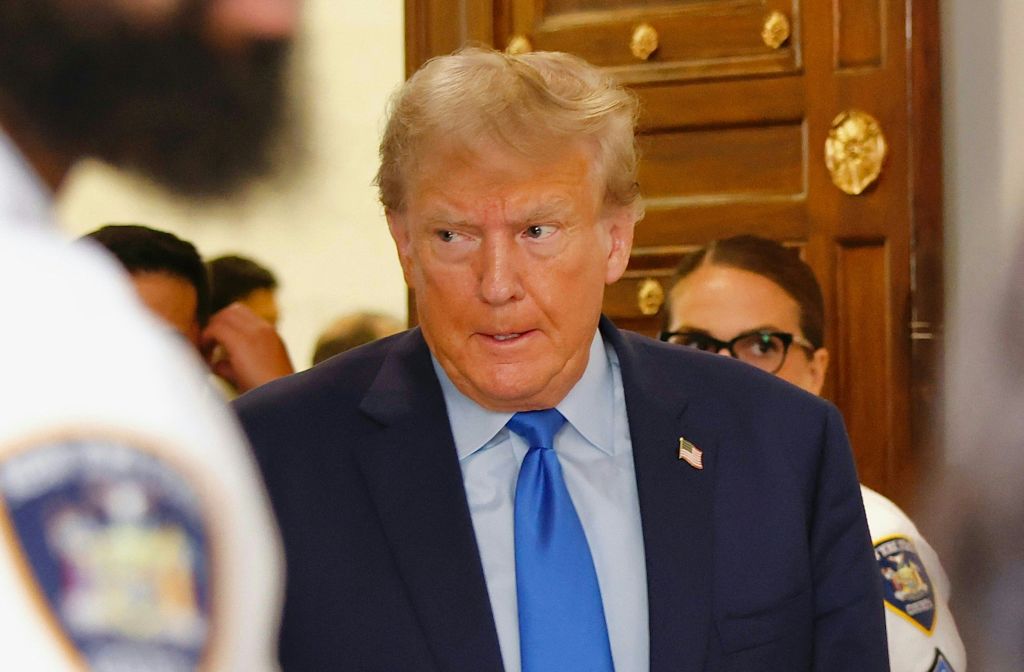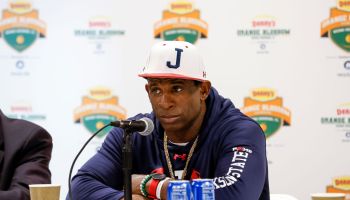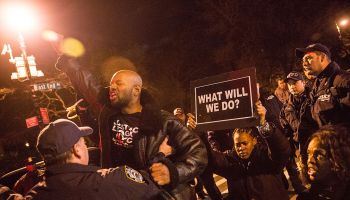Wild gyrations on Wall Street, a loss of confidence in the U.S. banking system and worries the economy will be weak for some time are raising Americans’ anxiety level.
Against this backdrop, President Bush on Friday was to give the nation a more detailed explanation of what the government is doing to battle the worst financial crisis in more than a half-century.
Despite a flurry of radical actions by the Bush administration and the Federal Reserve, banks in the United States and abroad are still wary of lending money to each other and to their customers. The credit clog is depriving the wheezing U.S. economy of oxygen.
Financial and credit problems have dragged on for more than a year and took a dangerous turn for the worse last month. All the fallout threatens to plunge the U.S. economy — as well as the world economy — into a painful recession.
White House officials said Bush didn’t intend to put forward any new policy actions. The president was delivering his address at the U.S. Chamber of Commerce headquarters across from the White House.
Earlier this week, the Treasury Department announced it would inject up to $250 billion in U.S. banks in return for partial ownership stakes, something that hasn’t been done since the Great Depression of the 1930s. The government hopes banks will use the capital infusions to rebuild their reserves and bolster lending to customers.
Bush and his top economic aides have repeatedly asked Americans to be patient and give the government’s relief efforts time to work. Democrats on Capitol Hill, though, insist another round of economic stimulus is needed.
So far this year, 15 banks have failed, compared with three last year. And Wall Street‘s five biggest investment firms were swallowed by other companies, filed bankruptcy or converted themselves into commercial banks to weather the financial storm.
At the same time of the Treasury announcement, the Federal Deposit Insurance Corp. said it would temporarily guarantee new issues of bank debt — fully protecting the money even if the institution fails.
The FDIC also said it would provide unlimited deposit insurance for non-interest bearing accounts, which are mainly used by small businesses to cover payrolls and other expenses. Frequently, these accounts exceed the current $250,000 insurance limit, so the expanded insurance should discourage nervous companies from pulling their money out.
Last week, the Fed and the world’s other major central banks joined forces to slice interest rates, the first coordinated action of that kind in the Fed’s history. The United States and other top economic powers adopted a five-point action plan last week and pledged to do all they can to stem the crisis.
Even with so many unprecedented steps taken, Wall Street has convulsed. On Thursday, the Dow Jones industrials finished up 401.35 points, after falling 380 points early in the session. A day earlier, the Dow fell a staggering 733 points. The index started the week with a record-shattering 936-point gain.
Fed Chairman Ben Bernanke warned this week that even if financial markets were to stabilize, the economy would not quickly snap back to good health.
Unemployment — now at 6.1 percent — could hit 7.5 percent or higher by next year. Many analysts predict the economy will shrink later this year and early next year, meeting the classic definition of a recession. Some believe the economy already jolted into reverse during the July-to-September quarter.
Americans are feeling strained as their paychecks shrink and their savings shrivel. That’s causing shoppers to cut back, one of the reasons the economy is losing traction. Economic slowdowns overseas, meanwhile, are expected to crimp demand for U.S. exports, which has been a main force keeping the economy afloat.
















